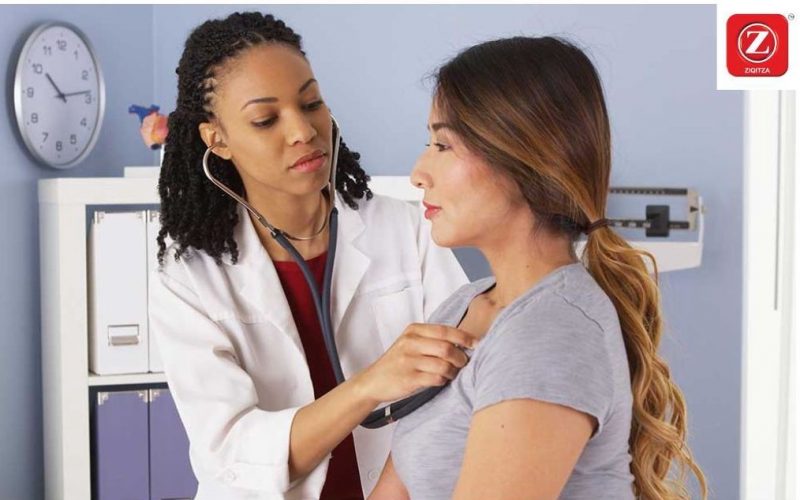Our twenties and thirties can be tricky! It is a time when we have a lot on our plates: finding a new job, a better house, and a decent salary are all on our minds, and double that if you’re a parent! It’s an age when there are so many responsibilities piling up that going to the doctor for the smallest of reasons can easily slip the mind.
Consider again! You never know, something so minor or seemingly insignificant could be a precursor to something far more serious! Ziqitza Healthcare ltd suggests that early detection is the key to future savings in time and money, not to mention your health! If you’re in your twenties or thirties, you’re at the right age to get these medical tests to ensure that nothing unusual is going on in your body! Ziqitza says that it should be noted that the purpose of this article is not to instil fear, but rather to raise awareness about the various health issues that men and women face, as well as the importance of early detection.
Medical Exams for Men and Women in their Twenties and Thirties
Pap Smear Test: This is a cervical cancer screening procedure, also known as a ‘Pap Test.’ The cervix is the opening of the uterus, and this test looks for precancerous or cancerous cells on the cervix. The Ziqitza Health care limited advises sexually active women to begin getting pap smears at the age of 21. Cervical cancer is a growing concern, particularly in India, so women must have this test at least every three years.
Mammogram: Mammography, also known as a mammogram, is critical for the early detection of breast cancer. It is a screening tool that uses low-energy X-rays of the breasts to detect and diagnose breast cancer. Breast cancer is the second most common cancer in women, after skin cancer, according to Ziqitza Healthcare. Women in their late twenties and early thirties should schedule this test at least once every two years. Get a mammogram even if you have no signs or symptoms of breast cancer. That is the whole point of early detection.
Lipid Profile Test: A lipid profile test is a series of tests used to determine the health of the heart. It is performed to assess the risks of coronary heart disease or as a preventive measure based on factors such as eating habits, diet, stress, exercise, and lifestyle. Lipids are fatty substances that are stored in the body’s blood and tissues. Despite the fact that they help the body function normally, lipid disorders such as high cholesterol can lead to life-threatening conditions such as strokes and heart attacks. Ziqitza Limited suggests that adults who smoke, eat an unhealthy diet, are overweight, or avoid exercise should have their lipid profile checked.
Blood Sugar Test: A blood sugar test is performed to determine the amount of sugar (glucose) in the blood. This test is critical for monitoring and managing diabetes. Ziqitza Rajasthan explains that blood sugar testing should be done on a regular basis because there is a narrow range of blood sugar levels within which the brain can function normally. Controlling the amount of sugar in your blood, when addressed at the right time, can also help you avoid serious health complications such as eye diseases, kidney problems, nerve problems, cerebrovascular diseases such as strokes, and cardiovascular diseases such as heart attacks, heart failure, and high blood pressure. You can test your blood sugar at home with a glucometer.
Urinalysis: Urinalysis is a standard urine test used to detect and manage a variety of disorders such as kidney disease, urinary tract infections, and diabetes. Doctors examine the appearance, concentration, and content of the urine because abnormal results can indicate an illness. ZHL Rajasthan explains that urinalysis is recommended as part of your routine medical checkup to check your overall health. This test is best taken in your twenties and thirties. A urine sample can aid in pregnancy testing and drug screening, in addition to pointing out (or ruling out) health complications.
Skin Cancer Screening: Skin cancer is on the rise, and statistics show that it is one of the most common types of cancer worldwide. To be on the safe side, keep your dermatologist’s phone number handy. Frequent screenings can aid in the detection of precancerous or cancerous skin lesions. Ziqitza Limited Rajasthan points out that in case of skin cancer, early detection is the key to avoiding this rapidly spreading disease. Hence make skin cancer screening a priority on your to-do list!
Eye Examination: An eye examination is a series of tests that evaluate vision and the ability to focus on and distinguish between objects. It is best to get an early diagnosis and maintain your eye health unless you want to spend the rest of your life behind a pair of round, thick glasses. Routine eye screenings can detect serious health conditions such as high cholesterol, high blood pressure, diabetes, and even cancer!
Dental Care: Our teeth and gums begin to rebel as we age. Tooth decay, bad breath, stained teeth, and gum diseases begin to take root, and if not treated promptly, your dentist may be forced to extract these teeth in the near future. It’s critical that you prioritise your dental health and schedule routine appointments with your dentist in your twenties!


